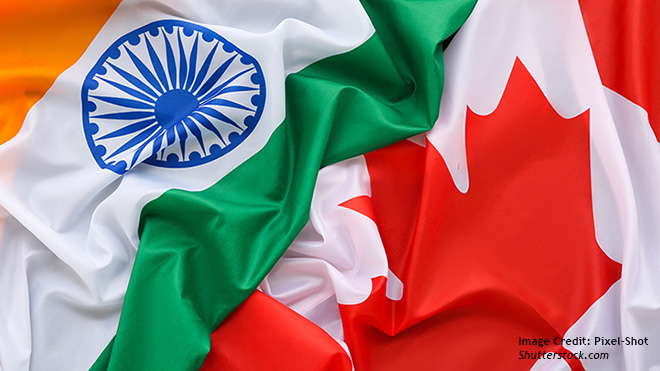
The discord began when Trudeau alleged that the Indian government was linked to the assassination of Hardeep Singh Nijjar, a vocal advocate for Khalistani separatism and a Canadian citizen, who was shot dead in British Columbia in June. During a session in Parliament, Trudeau referred to Indian diplomats as “persons of interest” in the investigation, stating that the Canadian intelligence community was pursuing credible leads regarding India’s involvement. These comments have raised eyebrows in diplomatic circles, prompting India to retaliate firmly.
The Indian Ministry of External Affairs issued a statement labeling Trudeau’s comments as “preposterous imputations” and asserted that they were aimed at diverting attention from Canada’s domestic challenges, including rising incidents of anti-Indian sentiment and violence against the Indian community. Indian officials emphasized the necessity of maintaining a mutual respect between nations, arguing that Canada's allegations lack substantiated evidence.
International reactions have varied, with some nations urging both sides to resolve their differences through dialogue while others are closely monitoring the situation. The United States expressed concern over the deterioration of relations between two key partners and called for transparency in the investigation surrounding Nijjar’s death. U.S. officials have indicated that they are willing to support diplomatic efforts to de-escalate tensions.
Trudeau's remarks come amid increasing tensions between India and Canada over a range of issues, including trade disputes and immigration policies. The diplomatic spat has led to reciprocal actions, with India suspending visa services for Canadian citizens and Canada advising its citizens to exercise caution when traveling to India. This has raised concerns about the implications for the sizable Indian diaspora in Canada, as well as for bilateral trade and investment relations.
The conflict over Nijjar’s assassination touches on broader issues related to the Khalistan movement, which advocates for a separate Sikh state in Punjab, India. Proponents of Khalistani separatism have found support among some segments of the Sikh diaspora in Canada. India has consistently expressed its concerns regarding the activities of Khalistani supporters abroad, which it perceives as a threat to national security.
Canada, on the other hand, has been criticized for providing a platform to individuals associated with the Khalistani movement. The Canadian government has faced pressure from various stakeholders, including advocacy groups, to take a firmer stance against extremism, which has become a point of contention in bilateral relations.
In response to the fallout, India has sought to clarify its position, with senior officials reiterating that their nation is a champion of democracy and the rule of law. They underscored that any allegations must be backed by evidence and that India's diplomatic missions operate within the framework of international law and respect for sovereignty. Indian diplomats have also pointed to the need for a robust framework to address bilateral issues and enhance cooperation in areas such as counter-terrorism.
The ongoing diplomatic standoff has implications that extend beyond the two countries, affecting their relationships with other nations. For instance, discussions regarding trade partnerships and geopolitical alliances may be impacted as both nations navigate the fallout from this diplomatic incident. The situation is further complicated by the geopolitical landscape, with both India and Canada having strategic partnerships with countries like the United States and the United Kingdom.
As the situation develops, the international community remains engaged, with calls for de-escalation and constructive dialogue emerging from various quarters. Experts believe that resolving these tensions is crucial for both nations, especially given their shared interests in promoting stability and security in the Indo-Pacific region.
